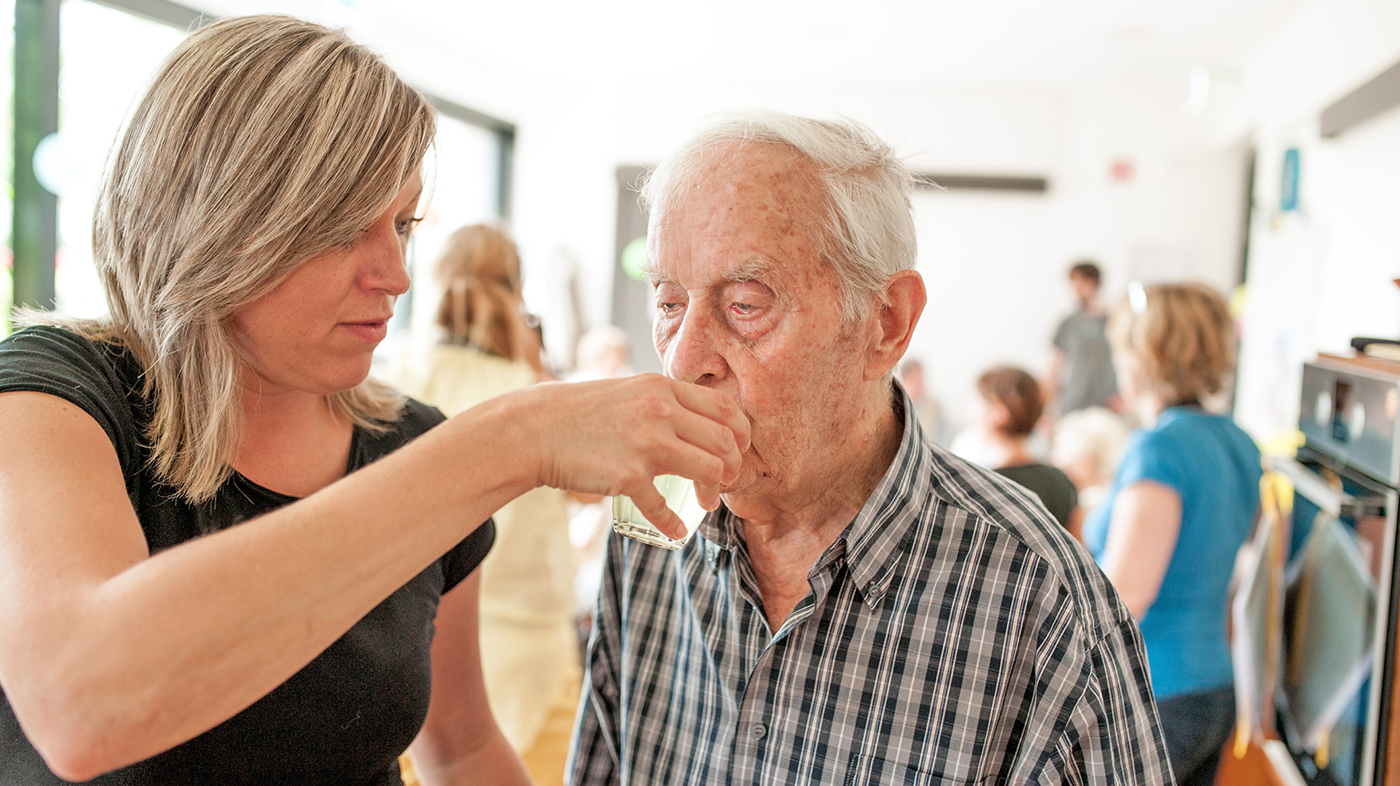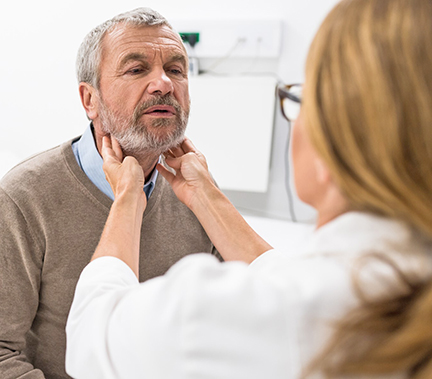In rural Montana, a Veteran needed a specialty consult, but a specialist wasn’t present at their VA Community Living Center (CLC). So, nursing staff used the VA Video Connect app to make that crucial connection with a VA provider nearly 700 miles away.
At CLCs, Veterans receive nursing home care. Centers in rural areas depend on VA telehealth services such as VA Video Connect to ensure Veterans receive proper specialized care without traveling.
“Telehealth and VA Video Connect made all the difference in this Veteran receiving timely and efficient care,” said Lindsay Drayer, speech-language pathologist who conducted the Veteran’s assessment.
Plan of action spanned the country over 24 hours
When Veterans are admitted into CLCs, the nursing staff does a swallowing screen to ensure the Veteran can safely consume regular meals. Trouble swallowing can also increase the risk for respiratory infections. If there are any concerns, the care team consults a speech-language pathologist to further assess the Veteran’s ability to swallow.
One evening in November during the nursing screen, staff at the Miles City VA CLC in Montana identified that a Veteran was having trouble swallowing. There were no speech-language pathologists available on-site to perform the consultation. As a precaution, they placed the Veteran on a modified diet until they could complete further consultation.
Taja Herzog, clinical care coordinator, reached out to Lindsay Dickinson, section chief of Audiology and Speech Pathology Service at Montana VA in Fort Harrison, 350 miles away. That decision set into motion a plan of action that would span the length of the country over the next 24 hours.
Specialized care through VA Video Connect
Because speech-language pathologists are in short supply in the area, Dickinson had previously worked to establish an interfacility consult with the Speech-Language Pathology team at Western Colorado VA. She contacted this team to help the Veteran in Miles City.
“When Lindsay Dickinson reached out, I was at a national speech pathology conference in Boston,” said Tasha Smith, lead speech-language pathologist at Western Colorado VA in Grand Junction, Colorado.
Smith stepped out of the conference and assisted in coordinating care to ensure this Veteran’s consult was conducted swiftly. From the streets of Boston to the plains of Montana down to the mountains of western Colorado, VA providers worked together to approve and conduct the Veteran’s assessment through VA Video Connect, all within the 48-hour standard-of-care deadline.
“That’s how we were able to get this up and going so quickly,” Smith said. “They already had the VA Video Connect device, they already knew how to use it and the connection was there. We were able to plug in seamlessly.”
“We did what we needed to do to provide the best patient care possible.”
Back in Miles City, nurse manager Ashley Hubbell knew where to go from here. “We have utilized VA Video Connect for a little over a year for Veteran’s screenings, for mental health, for urology and for podiatry. Veterans don’t have to travel two hours to see those specialists. We’re able to do it right here in the CLC. We’ve really grabbed telehealth by the horns,” Hubebell added.
Through VA Video Connect, speech-language pathologist Drayer conducted the assessment from Grand Junction. After she evaluated the Veteran, she was able to progress them to a regular diet.
“Everybody took ownership,” Lindsay Dickinson said. “We moved quickly, worked collaboratively and did what we needed to do to make sure we provided the best patient care possible.”
To learn more about what VA Video Connect can do for Veterans and VA providers, visit the VA App Store.
Topics in this story
More Stories
Study underscores important role COVID vaccination can have in protecting Veterans from infection and reducing long-term health consequences
Columbia VA’s robotic surgery teams completed their 800th robotic surgery and are on schedule to hit 1,000 by the end of the year.
In a decentralized clinical trial, Veterans can participate from their own homes or local VA instead of having to travel to a research site.







